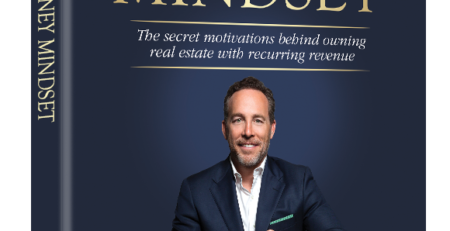4 Reasons Real Estate is a Strong Addition to Your Retirement Plan
Modern professionals spend a lot of time planning for retirement, a tradition that has been going strong for centuries. It’s a simple fact that at some point, you’re going to want to kick back, stop working and enjoy a nice relaxed retirement. Most people plan their entire careers for this moment. The right amount of savings to tide you over, the right amount of interest-bearing accounts, investments, and backup plans to make sure that no matter what happens, you’ll be able to coast comfortably after 65. There are a lot of ways to build a retirement plan, from tax-deferred savings accounts to playing the market and everyone plans their retirement a little differently.
Diversifying Your Retirement Plan
The smartest retirement planners are the ones who diversify, making sure never to put all their nest-eggs in one basket. You may have more than one retirement savings account, one with your employer and one held privately. You may have a few bonds, an annuity, or a life insurance policy that can be cashed out in an emergency. However, the one retirement planning step that almost everyone overlooks is something that is available to absolutely everyone. Even if you don’t have a personal wealth manager.
Real estate is one of the best things you can do for your retirement plan because it provides so many benefits and opportunities. Leave it alone and it will generate rental income for decades, or you can take an interest and optimize profits by becoming an active landlord. Let’s look at four of the best reasons to include real estate investments in your long-term retirement planning.
1) More Reliable than Stocks
The biggest fear in retirement is running out of money. Almost all retirement plans function off of the idea that you will completely stop bringing in new income after you leave the workforce. That fear of running out of money during retirement causes people to look for ways to make a static amount of money grow. Interest-bearing accounts are often too slow for satisfaction and many people turn to the stock market in hopes of finding a windfall that will increase their static savings.
Unfortunately, the stock market just isn’t predictable enough to be certain your money will come back greater or even the same as what you put in. The fact of the matter is that you can’t control the stock market so investing should always be done carefully with money you can afford to lose. Real estate, on the other hand, consistently appreciates in value every year. If you buy a home or commercial property in an active community, the property value will guaranteeably go up while you are in ownership, meaning that selling is always an option for an infusion of income. Even better is the opportunity to make steady income from rent. This is one of the few ways a retiree can make new income without going back to work and it comes in like clockwork, unlike the stock market.
2) Provides an Interesting Retirement Hobby
One of the biggest challenges of modern retirement is boredom. As medical technology improves, lifespans extend as does health in seniors. This means you are more likely to spend your retirement time looking for things to do, hobbies to start, or family to visit instead of worrying about a stack of medical concerns and limitations.
Unlike your other retirement investments which will quietly accrue interest and pay out on a schedule, owning real estate is the lowest impact way to dip your toe in the business world. While you can hire a property management service to handle everything, you can also become an active and interested landlord. This can be a great way to optimize your investment and find an entertaining retirement activity. With real estate, you can get involved in the community, get to know your renters, and become a part of your own investment.
3) Income is Better than Savings
The vast majority of retirement planning methods involve optimizing a static amount of money. Since the idea is that you have to make it to the end of retirement with however much you saved during your working years, most retirement plans focus either on interest returns or money that can theoretically be made from small stock investments. However, no one really likes the idea of living on savings, even optimized savings, which means that many retirements are much more stressful than they need to be.
Investing in real estate changes the game. It provides a way to generate new income every month that you don’t have to go to work to earn. Whether you choose a commercial or residential property to start with, the rent paid by your tenants can not only cover the mortgage and maintenance, it can also add new money to your retirement budget. If you’re retirement accounts already cover cost of living, then every rental payment is a little something extra to spend on yourself, your grandkids, or to tuck away if you’re worried about running out of the pre-saved funds.
4) Something to Leave to Your Children
Finally, many retirees worry about what they will leave behind. Life insurance policies and trust funds are often used to ensure that surviving spouses and heirs are guaranteed something after the sad event and many retirement plans include a special clause for paying out to family should the account be left unemptied. However, cash only goes so far and is all too easy to see disappear quickly. Real estate, on the other hand, is something solid that will continue to generate income even after you are no longer the owner. When ownership passes to your surviving spouse or grown children, they will inherit your equity, personal wealth, and a reliable source of income to support them for years to come.
While most people don’t think of real estate as a part of traditional retirement planning, it should be. Instead of building a retirement account keyed to the stock market or limited by some small interest rate, consider finding a profitable little property. It’ll be paying for itself and producing a rewarding retirement income in a matter of months.




